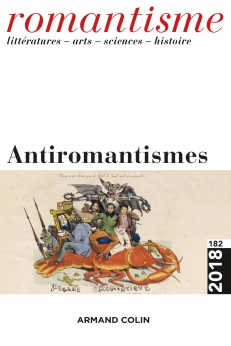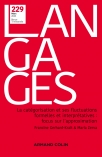
ROMANTISME N° 182 (4/2018)
Pour acheter ce numéro, contactez-nous
Recevez les numéros de l'année en cours et accédez à l'intégralité des articles en ligne.
Bien qu’ils se projettent dans un temps d’après le romantisme, les textes du jeune Marx portent la trace des admirations et des refus, des contacts et des tensions qu’il entretient avec lui. Marx ne tient pas de discours antiromantique, et n’envisage aucune poétique qui le dévaluerait.Mais il existe un antiromantisme marxiste, dont les racines plongent dans l’histoire du mouvement prolétarien, et qui a pris à l’époque stalinienne l’aspect d’une vulgate agressive. La critique d’obédience marxiste s’en est fait ou non l’écho : le romantisme y fait débat. Cette étude interroge la diversité des discours marxistes sur le romantisme, et pointe en particulier l’écart qui sépare Marx de ceux qui revendiquent sa filiation.
Even though the young Marx’ texts imagine themselves for a time after the Romantic era, they carry the marks of the admirations and rejections, contacts and tensions he entertained with the movement. Marx has no anti-romantic discourse to utter, nor does he imagine a poetics that would debase it. But an anti-romantic Marxism does exist, whose roots come from deep within the history of the proletarian movement, and which became, under Stalinism, an aggressive vulgate. Marxist criticism has echoed it, or not: romanticism is for it an issue. This paper focuses on the diversity of Marxist discourses on romanticism, pointing in particular to the distance between Marx and those who see themselves as his heirs.

